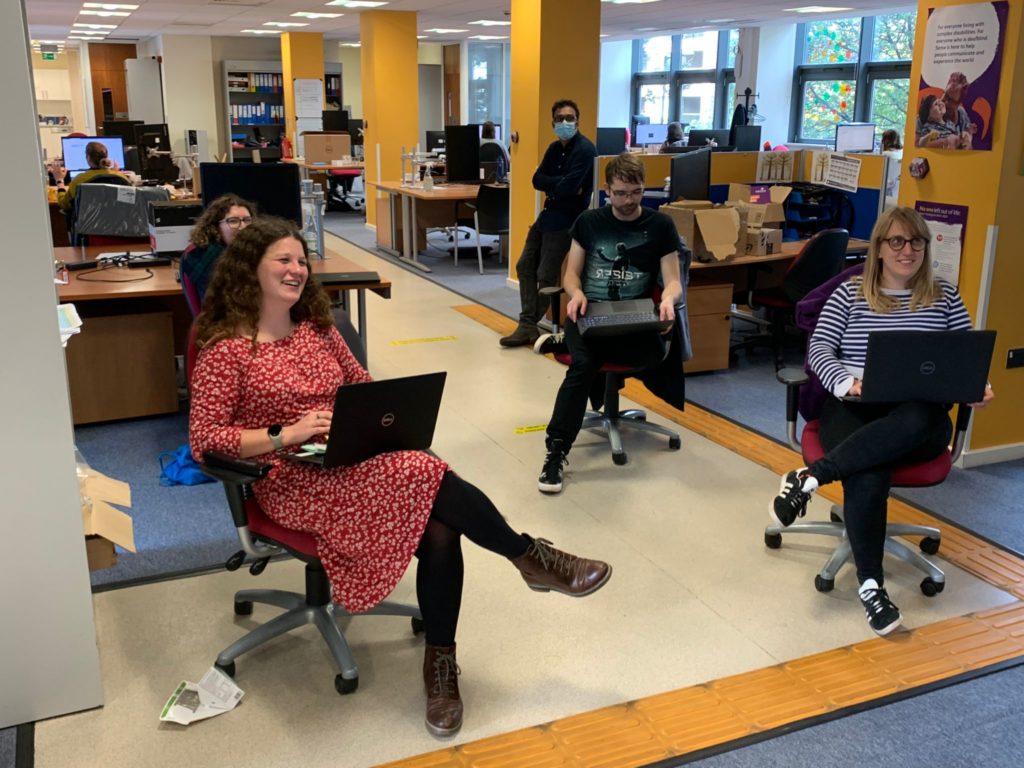A day in the life: reacting to the chancellor’s budget to help make change happen
Evan, who works on policy at Sense, explains what it’s like on one of the busiest days of the year in his job.
Last Wednesday, the government set out the budget (i.e. how it plans to spend the billions it raises every year).
Can you guess how many times disabled people were mentioned?
Just four.
That may not seem like much (and it isn’t), but in some years disabled people haven’t been mentioned at all.
Disabled people often get ignored
It goes to show how often disabled people, and particularly people with complex disabilities, get ignored in political debates that have such an impact on their lives.
That’s why Sense has a Policy, Public Affairs and Research team – the team I work in. We gather evidence on the challenges people with complex disabilities face (research), work out how to overcome those challenges (policy), and try to get politicians, and particularly the government, to put our ideas into action (public affairs).
And to make sure we know what policies will make the most difference, we make sure our policies are based on evidence. That might be by listening to the people we support through Sense services or running surveys of disabled people. Recently, Rachael, who looks after our research here, has been contacting councils to ask them if they employ specialists who can work with children with multi-sensory impairments. (Spoilers: only half of councils do.)
How we try to make an impact
But what does all of this actually look like?
It’s not your average day, but let’s use this Wednesday – Budget day – as an example.
For the past few weeks, we’ve been keeping an eye on the rumours about might be in the budget.
And so, on Wednesday, we got the chance to see whether the rumours were, and whether the government will do the things think will make the most difference to the lives of people with complex disabilities.
We want to see more money for social care
We huddled excitedly around the television to see what the chancellor had up his sleeve. Hoping to see more money being given to social care, as well as more investment in education for people with complex disabilities.

The budget was a bit of a mixed bag in terms of what we’d have liked to have seen. There were some positive steps but unfortunately, not enough to properly help the people we support.
Here are some of the things that jumped out:
- The government gave a grant of £4.8 billion to councils. We’re campaigning for this money to be ringfenced for social care as currently, local government can spend it however they want.
- £2.6 billion of new funding across the next three years for 30,000 new school places for children with special educational needs and disabilities. This is great a start but last 18 months have also been extremely difficult for disabled children and their families. We need increased investment in specialist educational support for disabled children and young people, not just restoring it to a level it was at decades ago. Alongside this, we need to see additional investment and integration with children’s social care and support for families and siblings.
Once we finished the budget watching party we hurried back to our desks to read the Red Book, which is a policy book where the government gives more details on how the money will be spent.
We needed to give our reaction
After that, it’s off to see our colleagues who work with the media, colleagues on our campaigns team, and colleagues manning our Twitter account. As fast as we could, we made sure we were giving our reaction to the press, and to the world on social media.
But the work wasn’t yet done! We needed to make sure MPs knew what we thought, so I wrote what we call a briefing (a document setting out what we think and why) about social care. We needed the £4.8 billion to be ring-fenced for social care. MPs were debating the budget over the next few days, so it was important to work quickly.
At the same time, my colleague Melissa sent out a separate briefing about the research we’ve recently carried out on the need for more teachers to support children with multi-sensory impairment. It all adds up to make an impact, and to help make change happen.
So that was the end of budget day! These things don’t happen every day, but we’re all really excited to do it all again for the Spring statement next year.

